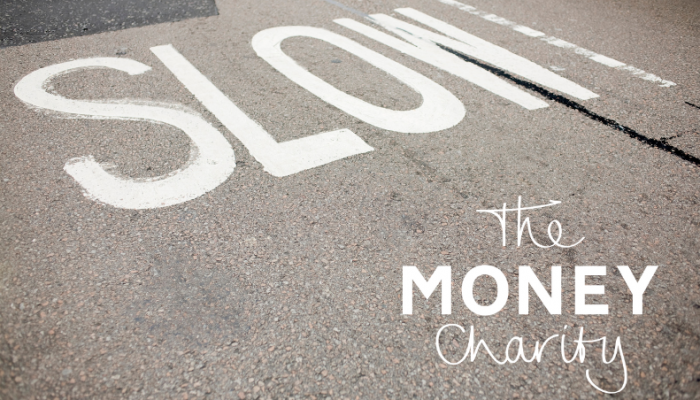A wide range of debt, price and financial statistics suggest a ‘slowing down’ of the UK’s economic landscape, according to the March 2019 Money Statistics, produced by The Money Charity.
While many recent months have seen significant rises or falls in various financial statistics, as we come to the end of the first quarter of 2019, a distinct picture of peaking or plateauing has emerged. In January 2019, the average total debt per household reached £59,409, however this represents a relatively low increase of 0.26% on the month before, and an annual rate of 3.2% (The Money Statistics March 2019 Full Report, P3, 5 + 6.) Meanwhile outstanding credit card lending was flat for the three months to January 2019, standing at £2,638 per household (P5.)
Other measures continue this sense of ‘slow down’, with average house prices falling overall since the summer of 2018, fuelled by a sluggish market and wider uncertainty (P9.) The Consumer Price Index (CPI) has also dipped below the Bank of England’s target for the first time since the beginning of 2017. As of February 2019, the annual rate stood at 1.9% (P15.)
Stepping back to examine the whole economy more widely, Gross Domestic Product grew by only 0.2% in the three months up to January 2019 (P15.) similar to the final quarter of 2018.
More active changes in numbers can be seen elsewhere however, with unemployment dropping to a new low of 3.9% of the total UK workforce (P16.), a total fall of 112,000 over the last year to a total of 1.34 million in the three months up to January 2019. The Government also ran a £4.56 billion surplus in the same period, largely due to strong tax receipts in January 2019 (P15.)
Michelle Highman, Chief Executive of The Money Charity says:
“In our mission to increase the UK’s financial capability, we encourage and help people to equip themselves with the tools and knowledge they need to financially plan well, and we believe that a key part of this is to look at and consider all eventualities, both good and bad, in their individual situation as well as the wider picture.
“Debt rising faster than income presents a further, serious challenge to the many people striving to get on top of and manage their money well. While a ‘slow down’ is problematic in many ways, an easing back from the recent rapid growth of debt does represent a degree of stability, which may allow more people to pause, assess and seek to make the best financial decision for themselves and their families.”
Other striking numbers from the March Money Statistics:
- Borrowers paid £140 million a day in interest in January 2019.
- Net lending to individuals and housing associations in the UK grew by £136 million a day in January 2019.
- It would take 26 years and 5 months to pay off the average credit card debt, if making only the minimum payment per month.
Get the full picture and many more fascinating facts about money in the UK in our monthly Money Statistics.
Notes to Editors
- The Money Charity is the UK’s financial capability charity. We believe that being on top of your money means you are more in control of your life, your finances and your debts, reducing stress and hardship, and that being on top of your money increases your wellbeing, helps you achieve your goals and live a happier more positive life as a result. Our vision is for everyone to be on top of their money as a part of everyday life. We empower people across the UK to build the skills, knowledge, attitudes and behaviours, to make the most of their money throughout their lives. Find out more at https://themoneycharity.org.uk/
- All statistics are from the latest available data at the time of writing/release.
- You may use any of the statistics quoted in this release, or within The Money Statistics, as long as:
o You don’t make any commercial or financial gain from their use;
o You do not make substantive adjustments to the presentation of the statistics, such as amending the statistic phrasing, or for example, repurposing the statistics into a format they are not appropriate for, such as an editorial/’opinion piece’ from the charity; and
o You clearly acknowledge The Money Charity as the providers of the information and point your audience towards signing up themselves for the monthly report.
- If you’d like The Money Statistics emailed to you every month as soon as they’re published, please sign up at: https://themoneycharity.org.uk/money-statistics/
- If you’ve any questions, comments, or want any information about the source of these statistics, please contact us through [email protected]
- Any media or press enquiries should be directed to our Communications and Marketing Manager, James Yelland, on [email protected]
